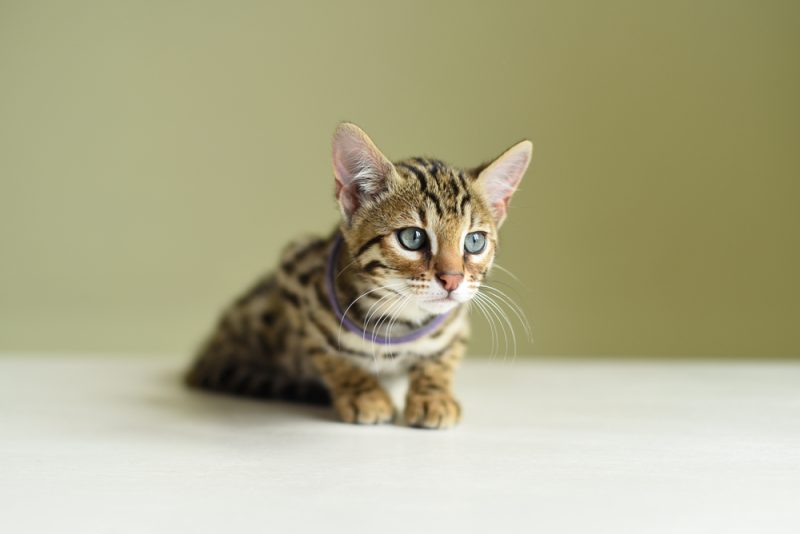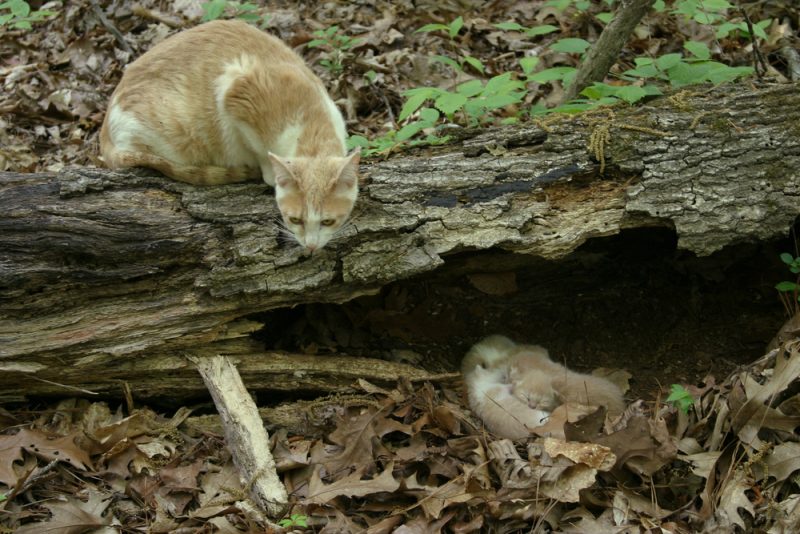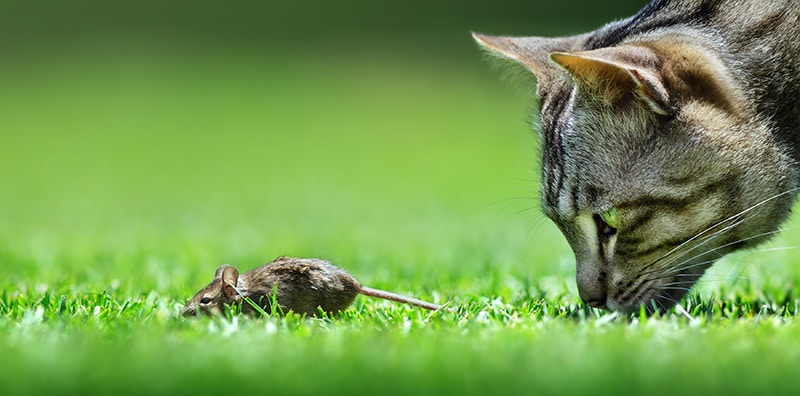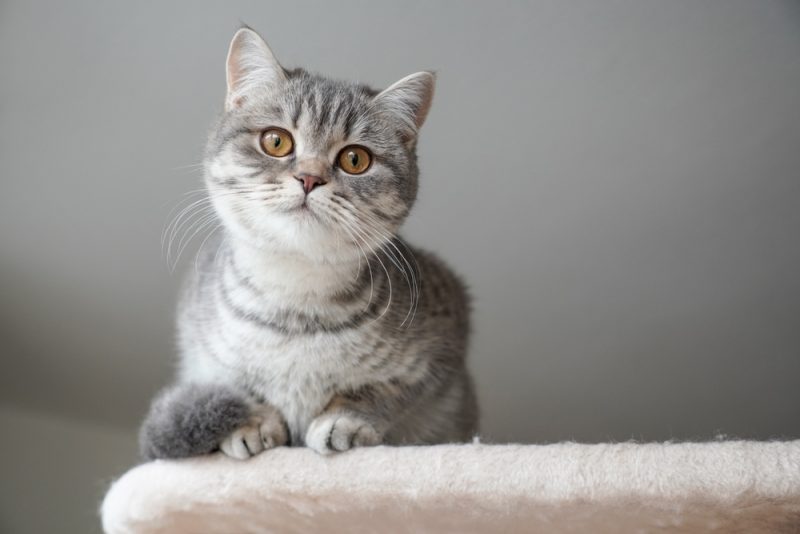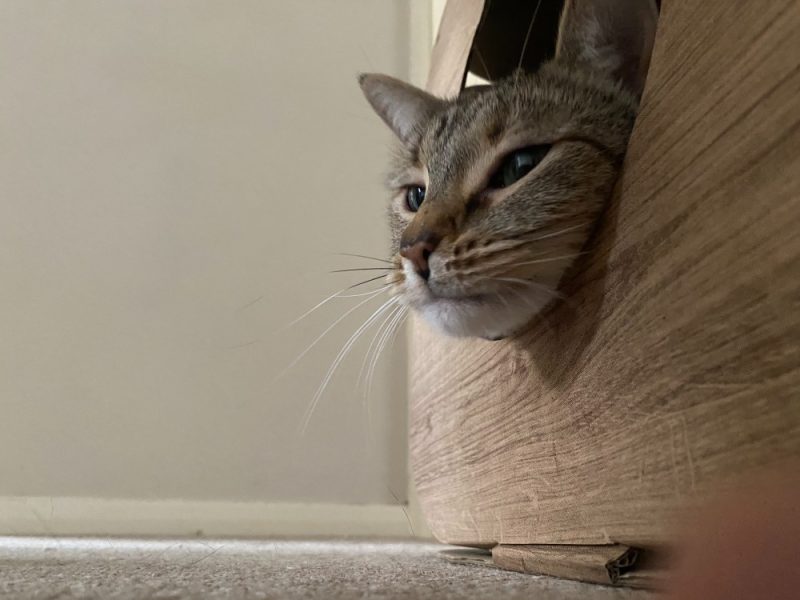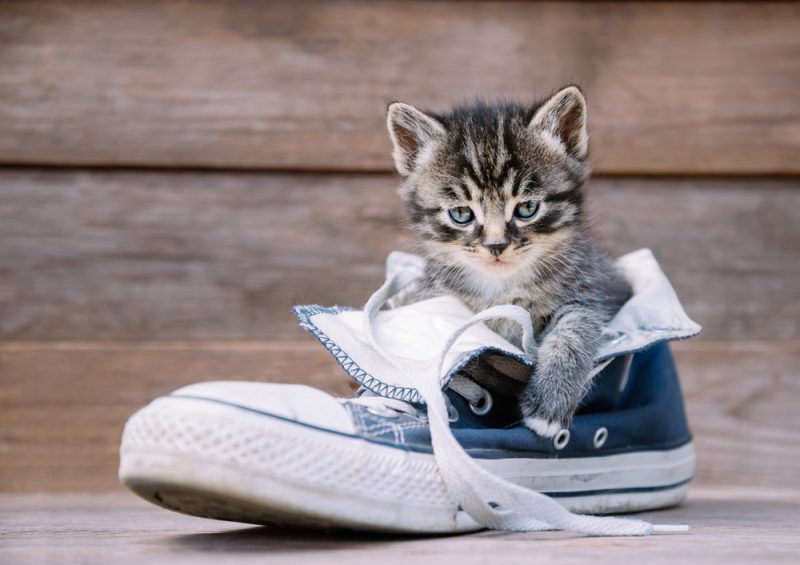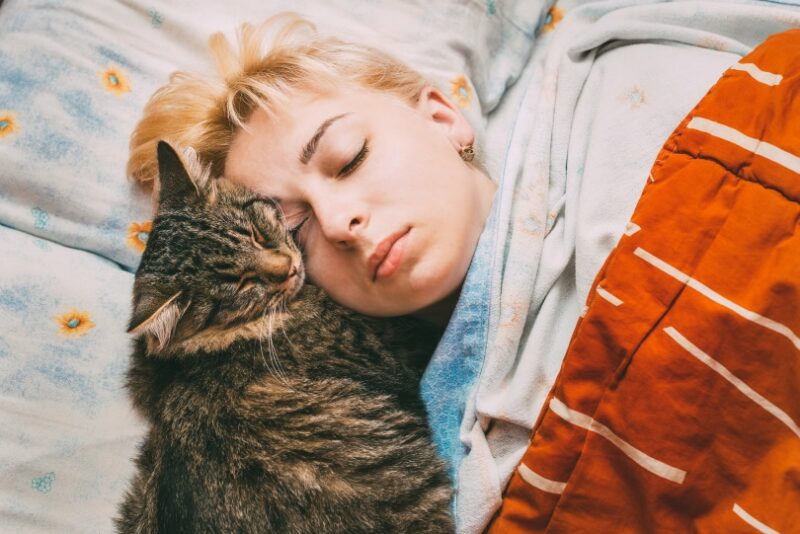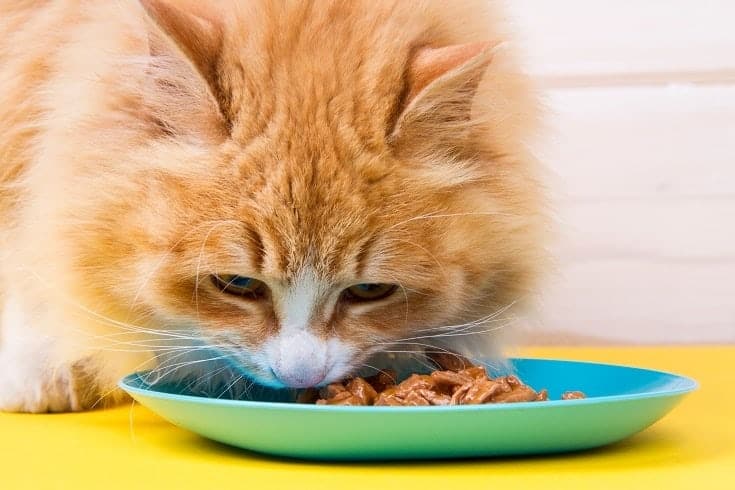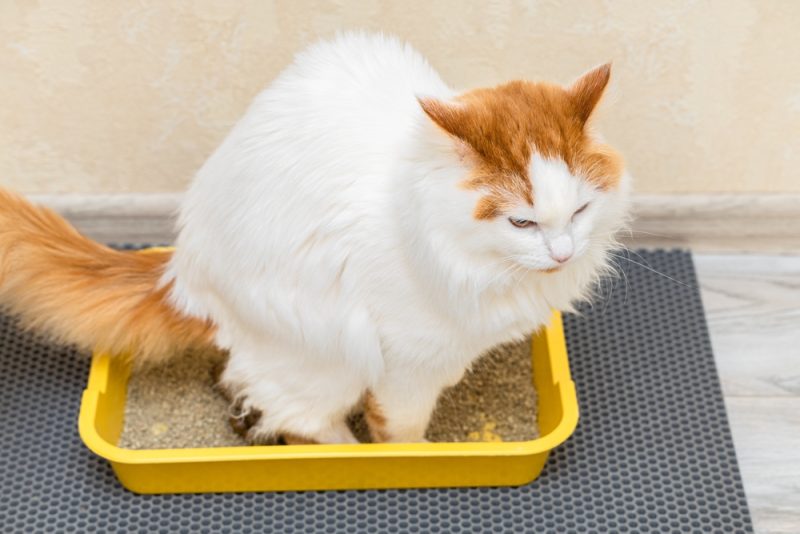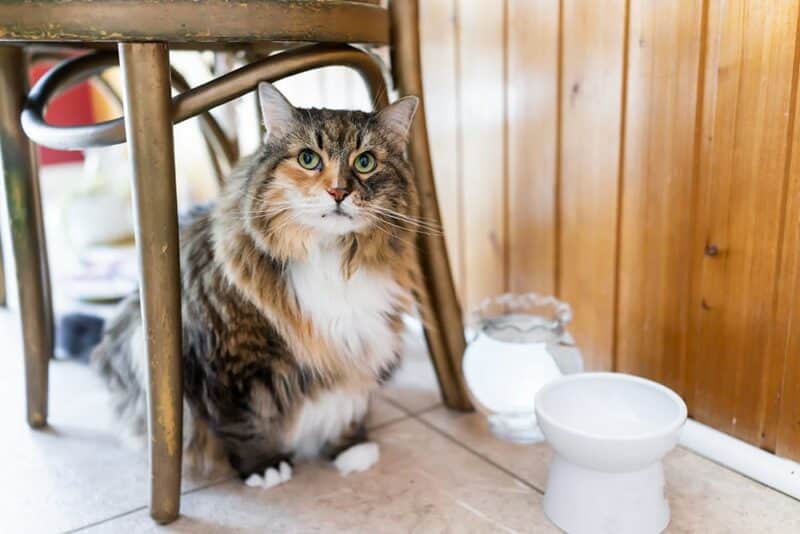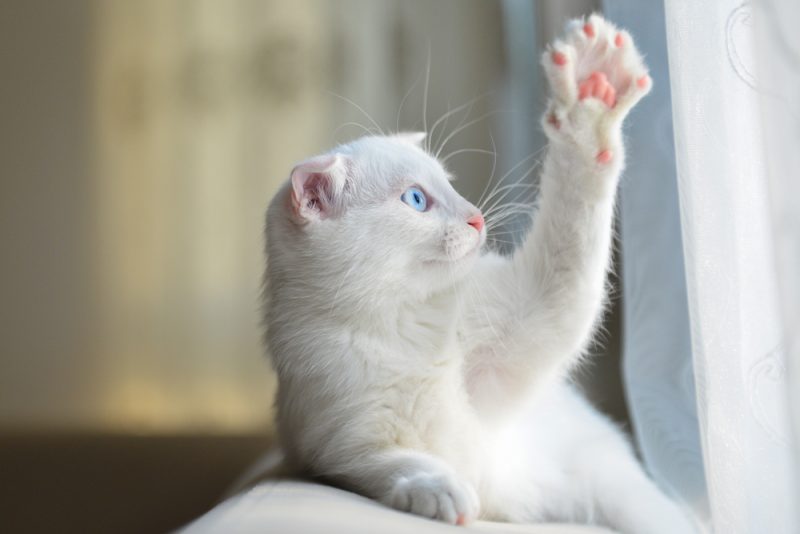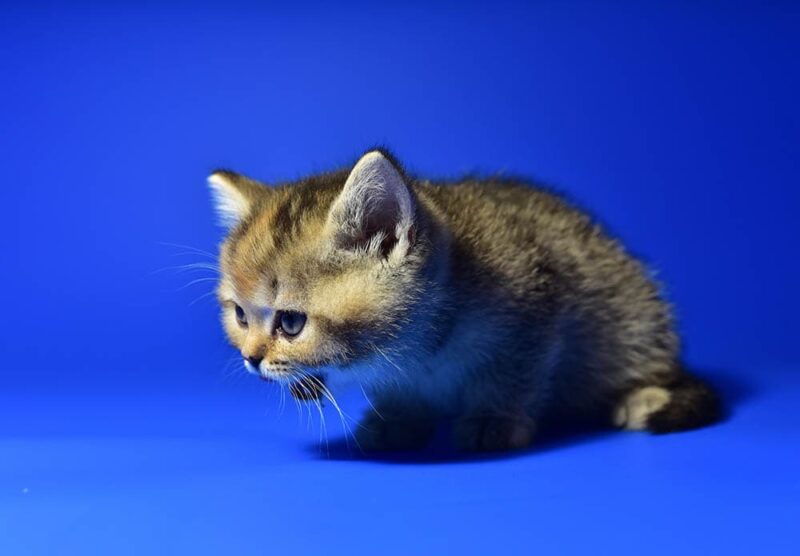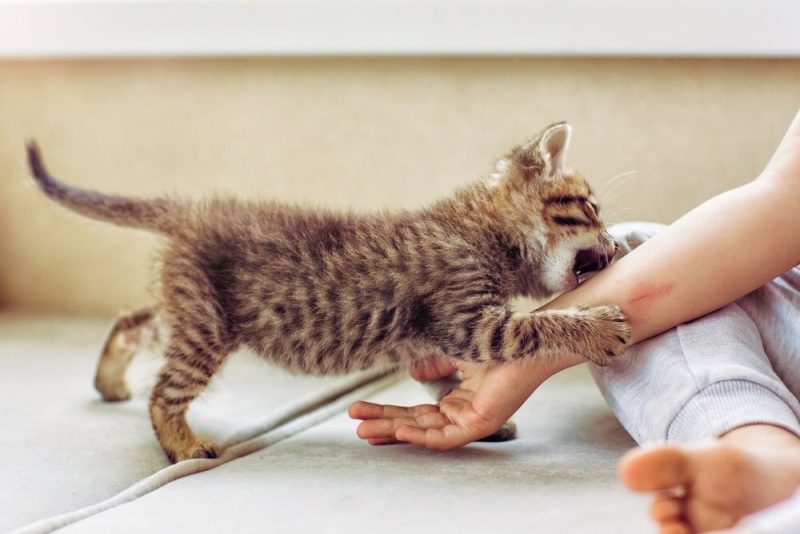In this article
View 3 More +Kittens are born helpless and blind—dependent on mom to get them through life. After the first several weeks, mom and onlookers alike will be shocked at how quickly they grow and become independent entities apart from their caretaker.
If you have a litter of kittens or you’re wondering how to care for an abandoned litter, this article has valuable information for you. Generally, cats are dependent on their mother for at least 8 weeks and should be fully independent by 14 weeks. We will go over how the average kitten matures, special health considerations, and how you can help kittens in need.

Kitten Growth Process
Before you get to the goods, you might want to brush up on the early development of a kitten. What is it like for them between womb and adulthood? Let’s start at the top.
Gestation
Cats can go into heat at roughly 4-6 months of age. Afterward, they can become pregnant and will quickly do so if given any opportunity. Once they successfully mate, you can expect a litter of kittens in about 65 days.
During this time, the mother should swell in the abdomen and her nipples might protrude and become much more noticeable. If you realize your cat might be pregnant, you might be reading this to know how soon you can rehome the kittens.
Just be patient. Trust us! We have solutions for you below.
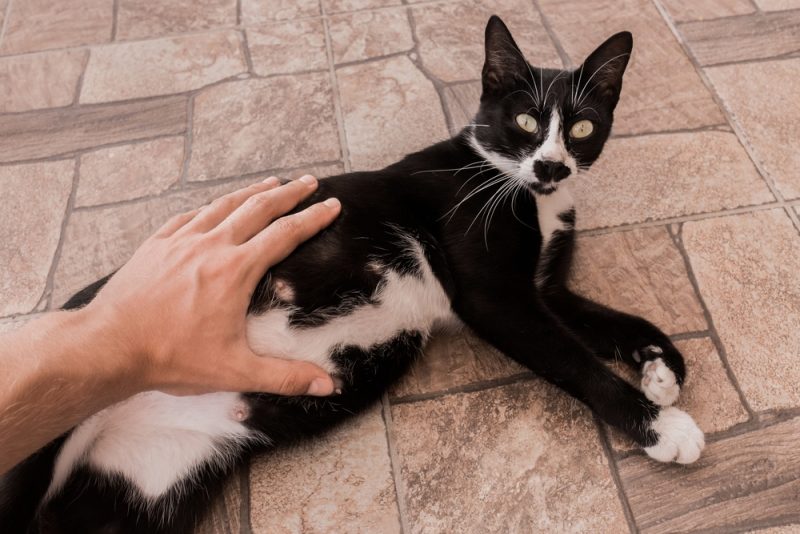
Dental Development
Like us, kitties get a set of deciduous or kitten teeth before the permanent teeth come through. Kittens get 26 deciduous teeth which they need to be able to eat food rather than milk or mush. The incisors are small teeth at the front which erupt around 2-4 weeks of age. Deciduous premolars are used for chewing and come through around 5-6 weeks of age. Kittens will get a full set of 30 permanent teeth by 7 months of age.
Weaning Stages
Once a kitten is born, they depend on their mother’s milk solely for the first several weeks. However, when they reach approximately 3 to 4 weeks of age, many owners start mixing a milk supplement with solids to deliver their first food in the form of a liquid or paste. They will go between this and their mother’s milk for a few weeks.
Eating Solids
Once the kitten starts to eat solids, they won’t slow down! They will take pleasure in chowing down each time the dish hits the ground. You might notice that the kittens start to fight over the food; some of the more dominant kittens might start getting quite frisky and being a little stingy. As they get older the food can gradually become less liquid and have a bit more consistency about it. By around 6 weeks the kittens can be offered some dry kibble.
If you need guidance on choosing the best food for your kitten, we suggest you speak to a vet.
Need veterinary advice but can't get to the clinic? Catster recommends PangoVet, our online veterinary service. Talk to a vet online and get the answers and advice you need for your cat without having to leave your living room — all at an affordable price!

Socializing
The socialization period occurs from 3-9 weeks in kittens. Socialization is imperative to each kitten’s development. They will have some much-needed time spent with mom, brothers, and sisters to ensure that they know how to behave. Socialization teaches kittens how to play properly and get along with others. So, it is a very crucial stage of development.
Kittens should also be exposed to people, kids, grooming, and gentle handling during this period to ensure they are prepared for life as pets. They should so be exposed to different kinds of foods, places, car rides, and everything they will need to be familiar with in their lives.
Socializing cats has some important behavioral benefits; it reduces fear and increases their bond with their owners.
Self-Sustaining
Eventually, you’ll notice by 12-14 weeks, if not sooner that the kitten is totally capable of self-sustaining. You won’t have to worry about the kitty needing mum—it is all put together in a nice little package and ready to come home. Mom will be totally hands-off by this point.

Rules Regarding Kittens Leaving Mom
If someone is trying to rehome a kitten, the little one needs to be at least 8 weeks of age, but ideally closer to 14 weeks. The reasons for kittens not being able to leave mum too early are behavioral. One study reported behavioral problems in kittens leaving their mother before 8 weeks of age and showed the behavioral benefits of staying with their mom until 14 weeks.
If you have a single orphaned kitten, be mindful of “single kitten syndrome”. These cats don’t get enough socialization from their mother and littermates, which leads to some behavioral problems. They may not understand appropriate social behavior with other cats and humans. They may hurt others without meaning to because they weren’t taught to regulate their bites or scratches. If you can find another kitten so they can be raised together this is ideal.
The 5 Tips on How to Wean Kittens Without a Mother
If you have a litter of kittens that have been abandoned by their mother, you may have to intervene. If this is the case, then it is imperative you follow direct guidance from a vet to get the kittens in optimal health.
Rushing the weaning process is a no-no. Whether the mother has lost interest in her litter or is nowhere to be found, it is so important you make the switch from formula to food slowly and at the correct age.
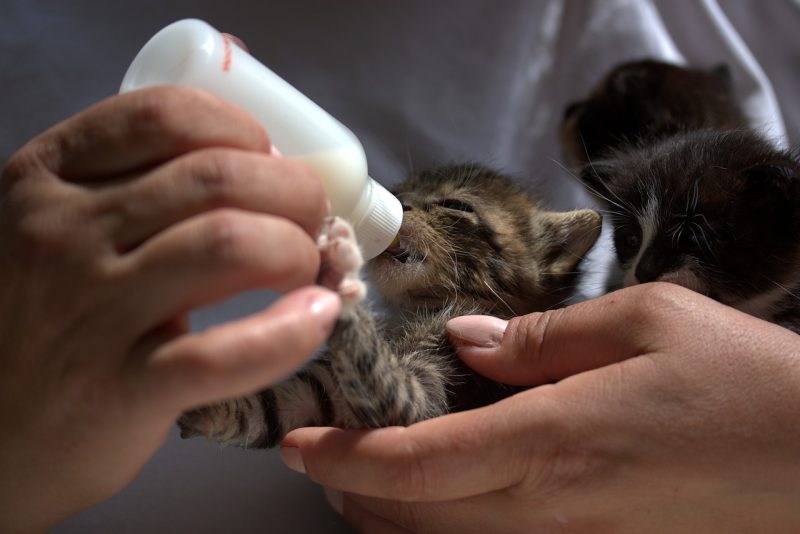
1. Offer Formula for 3–4 Weeks, Then Start to Introduce Solids
You can offer a kitten milk replacer to your kittens for at least 4 weeks using a bottle. When the time comes to add in solids after bottle-feeding for so long, you can slowly mush and mash kitten kibble or wet food until it is a rather slop-like substance. Ultimately, you’re looking for something that is the consistency of puree.
Some kittens will take right to the plate, chowing down like a madman. Others will take a more confused approach, wanting to eat, but taking a while to get their bearings. If they seem uninterested you can put some on their nose as they will lick it off and enjoy the taste.
Just remember—mix a small amount at first. You’re looking for baby food consistency.
2. Adjust as Needed
As your kittens get the hang of it, you can give more solids and less milk—just be sure not to do so too quickly. Any diet changes could lead to gastrointestinal upset if they are introduced too quickly. The kittens should have all their baby teeth by around 6 weeks. At this point, they can chew kibble and meaty chunks so you can offer some more solid solids.
3. Monitor Kittens Eating
Don’t let any kitten bully the rest. Make sure you monitor at first to make sure no kitten is hogging the food dish and they are all getting their fair share. Sometimes, if you have a particularly aggressive kitten, it’s best to feed the docile kittens elsewhere to ensure they get adequate nutrition.
4. Monitor Growth
Make sure you keep a close eye on the kittens’ weight. They should be gaining it pretty consistently. You may notice that there is one kitten bigger than the rest and one smaller than the rest—this is pretty standard as long as it isn’t an extremely drastic difference and they are all growing and gaining weight.
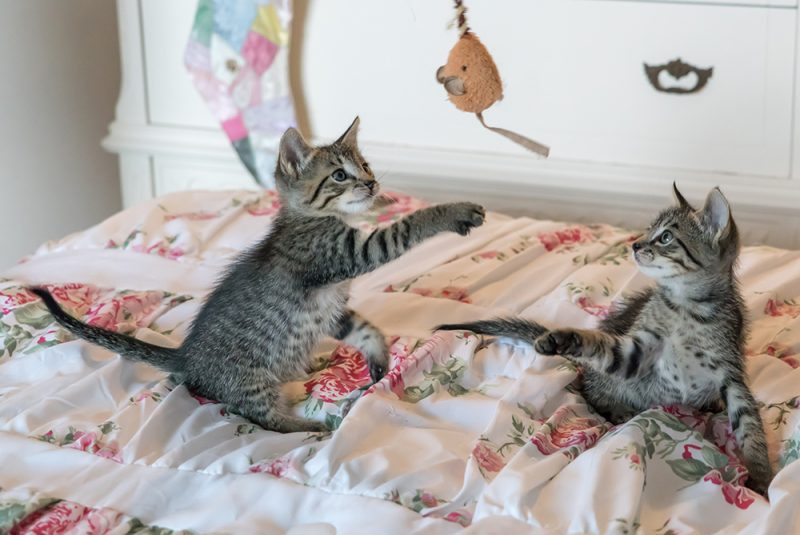
5. Provide Fresh Water When Appropriate
Kittens can start drinking water as they get less fluid from their food. Basically, when they stop consuming milk and mushy paste, they will naturally drink water for hydration. This usually starts around 5 weeks. They must have a fresh, clean source of water available at all times.

Frequently Asked Questions (FAQ)
Do kittens miss their mom and siblings?
It is expected that kittens miss their mom and siblings after they depart. After all, this is the kitten’s family and they form close attachments and teach each other valuable information. It is normal for a kitten to miss their family for a few weeks before you see improvement.
How long does it take for a cat to adjust?
Luckily, the quicker you form a bond with them, the more they will adjust. Each cat is different, so some kittens will warm up right away while others will take a few weeks. Adult cats may take longer to adjust, even up to a few months.
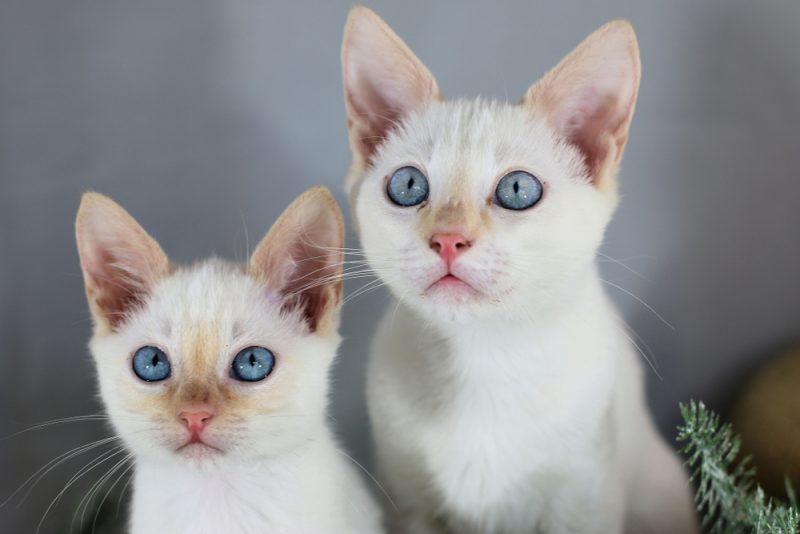
How do you report illegal selling of underage kittens?
You can call your local humane society for information on how to properly report for your area. Different places will have varying laws about the subject so it’s always best to go to the most accurate source of information first.

Conclusion
Now you understand that kittens should leave their mothers absolutely no sooner than 8 weeks old, but ideally, you should wait until about 14 weeks for optimal behavioral outcomes. If you have a motherless litter, make sure to keep them fed according to their age.
If you need any help in the meantime, don’t be afraid to reach out to a professional.
Featured Image Credit: Yana Vydrenkova, Shutterstock

